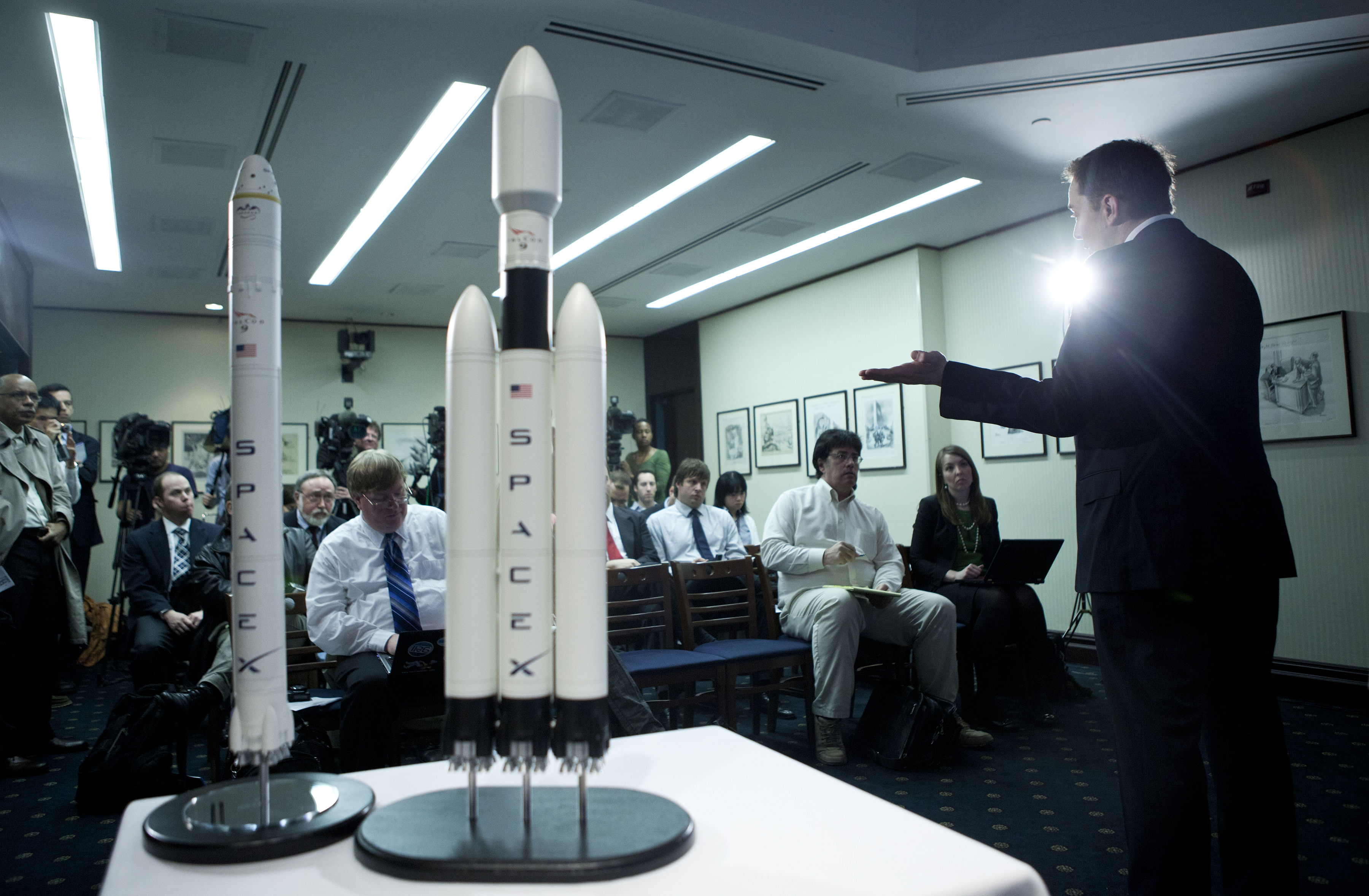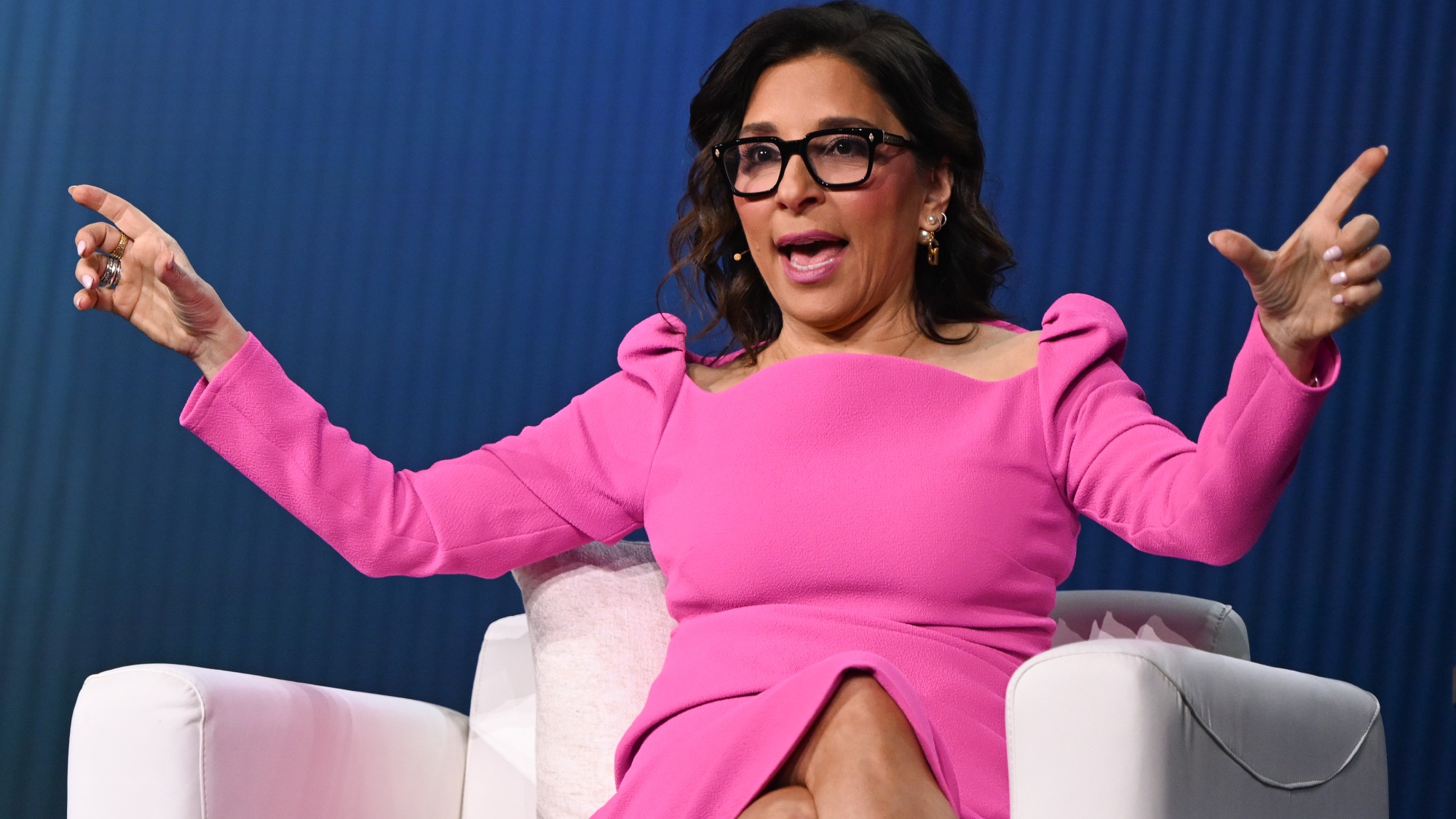Falcon Heavy: SpaceX test-fires its largest rocket yet
Elon Musk plans to send the craft on its maiden voyage ‘in a week or so’

A free daily email with the biggest news stories of the day – and the best features from TheWeek.com
You are now subscribed
Your newsletter sign-up was successful
SpaceX, the aerospace firm founded by Tesla chief Elon Musk, has finally test-fired the engines of its largest rocket yet, the Falcon Heavy.
The company had been planning to fire the rocket’s 27 Merlin engines at the Kennedy Space Center last week, says Wired, but postponed the test following a recent government shutdown and a number of technical problems.
Yesterday morning, however, SpaceX succeeded in carrying out the test on the Space Center’s 39A launch pad, which is reserved for the most powerful rocket firings, says the website. The same complex was used for launching Nasa’s Saturn V rocket for the Apollo moon missions.
The Week
Escape your echo chamber. Get the facts behind the news, plus analysis from multiple perspectives.

Sign up for The Week's Free Newsletters
From our morning news briefing to a weekly Good News Newsletter, get the best of The Week delivered directly to your inbox.
From our morning news briefing to a weekly Good News Newsletter, get the best of The Week delivered directly to your inbox.
Musk later tweeted that test firing had been “good” and that a possible launch window will open “in a week or so”.
When that does happen, the Falcon Heavy will become the most powerful operational rocket in the world, according to BBC News.
SpaceX has achieved this by strapping three boosters from its smaller Falcon 9 rocket together, the news site says. The company had to strengthen each booster to handle the extra power output.
Like the Falcon 9, the Falcon Heavy is designed to be “partially reusable,” says The Verge. After the rocket’s launch, the three boosters will return to Earth so they can be used on future missions.
A free daily email with the biggest news stories of the day – and the best features from TheWeek.com
SpaceX won’t send a satellite into space on the rocket’s first mission, the website says. Instead, Musk plans to launch his personal Tesla Roadster sports car in orbit around the Sun.
If the launch is successful, SpaceX could use the Falcon Heavy to transport supplies to the surface of Mars.
Falcon Heavy: SpaceX delays test launch of its largest rocket yet
17 January
SpaceX has postponed the engine fire up of its new Falcon Heavy rocket after failing to begin the test in the allotted time, reports Alphr.
The aerospace firm, headed by Tesla co-founder Elon Musk, had been scheduled to start the rocket’s 27 engines as part of a static test on Tuesday at the Kennedy Space Centre in Florida, the website says.
But a series of delays at the launchpad has pushed the rocket’s engine test to Friday at 3pm local time (8pm GMT).
The Falcon Heavy is the most powerful rocket in the aerospace firm's fleet, says Digital Trends. In power alone, the Heavy is beaten only by Nasa’s Saturn V craft that took astronauts to the moon in the late 1960s and early 70s.
The rocket is essentially three Falcon 9s, SpaceX’s smaller and most used spacecraft, fixed together with a single upper stage to carry payloads, the website says.
The company plans to use its pioneering rocket recycling process on the Falcon Heavy as well, the site adds. Shortly after the craft launches, the three booster rockets will land back on Earth so they can be used on future missions.
It’s not yet known when the rocket firm plans to send the Falcon Heavy into space, but Alphr says SpaceX hopes the craft is capable of completing the six-month journey to Mars.
When that time comes, says CNet, the company plans to carry a Tesla Roadster to the red planet, where it will remain in orbit.
-
 Are AI bots conspiring against us?
Are AI bots conspiring against us?Talking Point Moltbook, the AI social network where humans are banned, may be the tip of the iceberg
-
 Elon Musk’s pivot from Mars to the moon
Elon Musk’s pivot from Mars to the moonIn the Spotlight SpaceX shifts focus with IPO approaching
-
 Moltbook: the AI social media platform with no humans allowed
Moltbook: the AI social media platform with no humans allowedThe Explainer From ‘gripes’ about human programmers to creating new religions, the new AI-only network could bring us closer to the point of ‘singularity’
-
 Will regulators put a stop to Grok’s deepfake porn images of real people?
Will regulators put a stop to Grok’s deepfake porn images of real people?Today’s Big Question Users command AI chatbot to undress pictures of women and children
-
 Data centers could soon be orbiting in space
Data centers could soon be orbiting in spaceUnder the radar The AI revolution is going cosmic
-
 Inside a Black community’s fight against Elon Musk’s supercomputer
Inside a Black community’s fight against Elon Musk’s supercomputerUnder the radar Pollution from Colossal looms over a small Southern town, potentially exacerbating health concerns
-
 X update unveils foreign MAGA boosters
X update unveils foreign MAGA boostersSpeed Read The accounts were located in Russia and Nigeria, among other countries
-
 What's Linda Yaccarino's legacy? And what's next for X?
What's Linda Yaccarino's legacy? And what's next for X?Today's Big Question An 'uncertain future' in the age of TikTok


